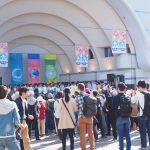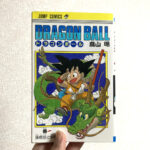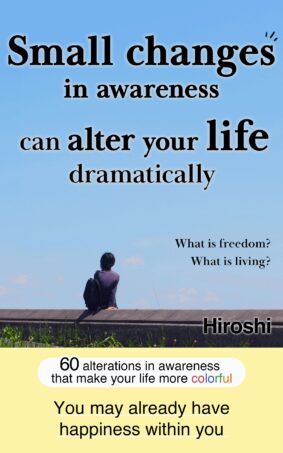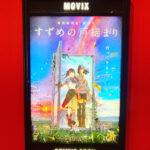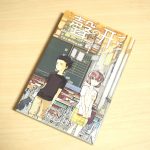Beautiful Quotes of Your Lie in April in Japanese!!
The anime that I remember when the season of Sakura approaches is Your Lie in April.
If I pick up top3-best-anime which brought me to tears, definitely I would say Your Lie in April.
It’s very beautiful both story and animation.
And so impressive.
Blessed with impressive quotes, so it took time to pick up, haha.
After all, I chose the quotes of the main characters, Kaori and Kosei (I might add other characters’ later).
Here, I’ll introduce you part of the impressive and beautiful quotes of Your Lie in April in both English and Japanese.
※Quotes I introduce here might include some spoilers, so if you are like “no spoilers”, please watch the real anime of “Your Lie in April” first and I’m glad if you come back here again
Quotes of Kaori Miyazono (宮園かをり)(みやぞのかをり)
Whether you’re sad, you’re a mess, or you’ve hit rock bottom, you still have TO PLAY! That’s how people like us survive
悲しくてもボロボロでも、どん底にいても、弾かなきゃダメなの。そうやって私達は、生きてゆく人種なの。
悲しい(かなしい) is “Sad”.
ボロボロ is an “Onomatopoeia” and means a “State you are worn out”.
In other words, “Being a mess”.
You can use this ボロボロ for the things like clothes, too
For example, ボロボロの服(Worn out clothes), ボロボロの靴(Worn out shoes), etc.
どん底(どんぞこ) is “The Bottom”.
That is, “Desperate situation”.
弾く(ひく) is “Play”.
ダメ means “No” or “No Good” or “Bad”.
そうやって is “Like that” or “That’s how”.
人種(じんしゅ) is “Race”.
To stress that they are professional musicians (Kaori and Kosei), Kaori used the word “人種”.
This is the quote Kaori told Kosei when she first heard the very reason Kosei can not play the piano anymore.
She was surprised first and embarrassed when she heard the story.
But she encouraged Kosei saying we have to play whether we are sad or hit rock bottom instead of commiserating him.
That was her kindness.
Just feel sorry doesn’t Kosei get anywhere but Kaori wants to encourage Kosei and make him walk his own pass again.
So, she was being strict and told Kosei straight.
Please, be my accompanist, support me a little bit, Please support me in this moment I’m about to lose heart
お願いします 私の伴奏をしてください 私をちょっぴり支えてください くじけそうになる私を── 支えてください
Literally, お願いします(おねがいします) is “Please”.
I ask you ~ means “お願いします”.
伴奏する(ばんそうする) is “Accompany with”.
ちょっぴり is a kawaii expression of “Little”.
“Little bit” is closer to the meaning.
Usually, we use “少し(すこし)”.
That’s a formal expression.
But she used “ちょっぴり” and that expresses her character and her feeling of “even just a little, help me”.
くじける means “Lose one’s heart”.
Here she says “くじけそうになる”.
~そうになる means “be about to”.
Kaori also used polite expression of “です” and “ます” here.
That conveys her seriousness.
She never used polite words (that’s normal as they are friends), rather never asked Kosei any favor until this time.
Kosei kept declining to accompany her as he knew he couldn’t play the piano like before anymore.
And he was disappointed in himself.
Kaori was always positive and always encouraged him.
But here Kaori was crying and revealed her weakness for the first time to Kosei.
She was also not such a perfect girl but tried to look always positive.
I think that was for herself and for Kosei.
Look at me. look up and look at me. You are always looking down, that’s why you are imprisoned inside that cage of staff notation (Music scores)
私を見て 顔を上げて私を見て 下ばかり向いてるから 五線譜の檻に閉じ込められちゃうんだ
見る(みる) means “Look”.
In this case, Kaori asked him to look at her, so it becomes “見て”.
If she was a man, it might become “見ろ”.
顔を上げる(かおをあげる) is a verb which means “Look up”.
And 下を向く(したをむく) is an opposite action, “Look down”.
五線譜(ごせんふ) means “Staff notation”.
“Music score” is more casual expression, isn’t it.
檻(おり) means “Cage”.
閉じ込める(とじこめる) means “Imprison” or “Catch up”.
Here its passive form of “閉じ込められる” is used.
Right before their performance.
Kosei was so nervous and could not imagine he can make it.
Kaori spoke to him but he couldn’t catch the words as he got so nervous.
Then, Kaori told him to look at her in the face.
“You can make it”, and she added, “We can make it”.
We’re all afraid, you know… to get up on stage. Maybe you’ll mess up. Maybe they’ll totally reject you. Even so, you grit your teeth and get up on stage anyway. something compels us…moves us to play music
みんな怖いよ。舞台に上がるのは。失敗するかも。全否定されちゃうかもしれない。それでも歯をくいしばって舞台に上がる。何かにつき動かされて、私達は演奏するんだ。
全否定(ぜんひてい) is “Complete denial”.
Just denying is “否定” but deny something or someone completely becomes “全否定”.
全 means “Everything” or “Completely”.
The word 否定 has been used since old days but I think this 全否定 was started to use over the two decades or so, especially among the young generation.
歯 means “Teeth” and くいしばる means “Grit”.
So, 歯(は)をくいしばる means literally “Grit one’s teeth”.
That means to struggle and make effort for something.
つき動かす(つきうごかす) is “Prod” or “Motivate”.
Kaori asks Kosei to play with her in a music contest.
But Kosei replies “I can not play”.
He just had no confidence to play well and looked down.
Then, Kaori tells him “We’re all afraid”.
You might mess up and the audience might reject you completely, still, we keep going.
That was her determination and she said that to Kosei and to herself.
Again
アゲイン
Very simple word, isn’t it.
アゲイン is just “Again”.
In Japanese, “もう一度(もういちど)” or “もう一回(もういっかい)”.
This is the key and symbolic phrase of Kaori.
Even if she couldn’t do well, she just starts again saying “Again”.
Don’t be discouraged, not lose confidence.
As long as you are there, you can start again, that was her way.
And Kosei also reminded her word when he could not play well and stopped playing the piano at the contest.
He reminded her voice “Again” and started to play again.
You’re you. To be like you… it’s not so ambiguous as that. no matter what you do, no matter how you change, it doesn’t mean a thing. You’re just you, after all
君は君だよ ”君らしく”なんて 曖昧な物じゃない 何やったって変わったってカンケーない 君はどうせ君だよ
君(きみ)は君.
That is “You’re you”.
You can also say “You are who you are” or “You are what you are”.
らしく is “Be ~self”.
君らしく, あたならしく, 私らしく, etc. we can use.
曖昧(あいまい) is “Ambiguous”.
Here カンケーない is Kanakana but usually, it is written in Kanji as “関係ない(かんけいない)”.
関係ない means “No relation”.
To highlight no relation, here it is translated as “It doesn’t mean a thing”.
“It doesn’t matter” might be also OK to use.
どうせ is “After all”.
Actually, どうせ is a rough, abandoned expression and usually used in a negative way.
When you don’t expect anything from something or someone, you can use this word.
But as you know, what Kaori told him was all positive.
This どうせ highlights Kaori’s care about Kosei.
By using this negative abandoned phrase on purpose, Kaori tried to reassure him and make him confident.
When Kosei told Kaori that he still lived behind the shadow of his mother, Kaori told this.
After all (どうせ), you are what you are, nothing can change, nothing can change your true character.
She also said, “To be like you..it’s not so ambiguous as that”.
People might tell you “You should live your life the way you are” in this kind of situation.
But Kaori declared “You’re you”, instead.
That expresses her strong emotion toward Kosei
Kosei is Kosei, so nothing to be afraid of, “You are not the shadow of your mother”, she told him.
By exchanging notes, you get to know one another, to understand one another. As if your souls were connected and your hearts were overlapping. It’s a conversation through instruments. A miracle that creates harmony. In that moment, music transcends words.
音を交わすことで お互いを知り お互いを理解する まるで魂が結びつき 心を重ねるように それは楽器を通じての対話 ハーモニーの生み出す奇跡 その瞬間 音楽は 言葉を超えるのです
交わす(かわす) means “Exchange”.
We sometimes use this 交わす for “言葉(ことば)(Language or words)”.
言葉を交わす is a common phrase to be used.
I think this is the first time I hear the expression “音を交わす” but yes it also makes sense as sounds can convey feelings, certainly.
お互い(おたがい) means “Each other” or “One another”.
魂(たましい) means “Spirit” or “Soul”.
心(こころ) is “Heart”.
重ねる(かさねる) means “Overlap” or “Pile up”.
心を重ねる is an expression used when people share and come together to understand each other.
Beautiful expression and I like the phrase.
楽器(がっき) is “Musical instruments”.
対話(たいわ) means “Dialogue”.
ハーモニー is katakana, so the same meaning as “Harmony” in English.
生み出す(うみだす) means “Create” or “Cause”.
奇跡(きせき) is “Miracle”.
超える(こえる) means “Transcend” or “Go beyond”.
This is the word once Kaori told Tsubaki when they went back home by bus.
This is the word professional musicians can tell, I thought.
But that’s true, certainly.
Music beyond the border and touch our hearts although we can not understand the language.
Tsubaki likes Kosei but she noticed that there is Kaori next to Kosei now.
And she remembered the words Kaori once told her.
Kaori and Kosei had a common thing which can transcend words.
That was music.
Don’t you struggle?
We are good at struggling, don’t we
君はあがかないの?私達あがくの得意じゃない
あがく means “Struggle”.
得意(とくい) is “Good at”.
あがくのが得意 is “Good at struggling”.
This is the phrase, Kaori told Kosei.
Interesting phrase but it’s so Kaori, isn’t she.
Kosei was really down as Kaori was in a serious condition in a hospital.
He was so down and hadn’t been practicing although the gala contest was just around the corner.
“I can’t”, he tells Kaori.
Then, she suddenly stands up and pretends to be playing the violin.
Just standing up is a tough thing to her now but to show him that a miracle can happen, she did.
And says, you can also do it.
“We are good at struggling”
Quotes of Kosei Arima (有馬公生)(ありまこうせい)
So, thank you. For sweeping away the dust that had collected on my body
僕の体に積もったほこりを払ってくれてありがとう
積もる(つもる) is a verb which means “Pile up”.
Here, its past tense 積もった is used.
ほこり is “Dust”.
払う means “Sweep”.
Kaori cried as she knew the reason he was suffering was her.
She made him back to the world of music again but it also meant suffering to Kosei.
She says “ごめんね (I’m sorry)” with tears streaming down her face.
But Kosei told her “ありがとう (Thank you)” for sweeping the dust he got on him.
This is a metaphor.
Actually, his piano had been gotten dust since Kosei quit playing.
But Kaori was the one who swept the dust.
Ever since that day… my world, even the keyboard… became colorful
あの日から 僕の世界は鍵盤でさえ カラフルになっていたんだ
鍵盤(けんばん) is “Keyboard”.
カラフル is カタカナ, isn’t it.
So, it is the same meaning as “Colorful” in English.
This quote is the continuation of above quote of Kosei.
After saying “Thank you” to Kaori for sweeping dust on him, he talked to himself.
Since he met with Kaori, his monotone world became colorful, even the monotone color of the keyboard.
He might have been suffering as he had to face piano again.
But thanks to Kaori his world changed and he could step forward.
So, he said “ありがとう” to Kaori.
Worrying, thinking, suffering and the answer I (finally) arrived was so simple
悩んで 迷って 苦しんで たどりついた答えは笑っちゃうくらい シンプルで
悩む(なやむ) means “Worry”.
迷う(まよう) means “Thinking”.
But it’s not just simple thinking.
迷う is a situation you don’t know what to do or which to choose, so thinking with a bit of suffering sometimes.
苦しむ(くるしむ) is “Suffering”.
たどりつく means “Get to somewhere (or something)”.
It is not just a simple arrival but you take efforts and manage to get there.
笑う means “Laugh”.
笑っちゃう is “Make me laugh”.
くらい means “Like”.
This Like means “Close to” “Almost equal to”.
So, 笑っちゃうくらい is “It’s like almost make me laugh”.
It can be translated as “So” here in the quotes in English.
シンプル is カタカナ, isn’t it.
So it is the same meaning as “Simple” in English.
“笑っちゃうくらいシンプルで” can be translated as “So simple”.
Kaori tells him you are what you are.
Kosei is Kosei, so just relax.
And she tells him that he can ask for help if he is suffering by telling him a quote from Charlie Brown.
Kosei had been suffering since he was a child.
Lived in the shadow of his mother.
But Kaori changed his world and led him to the answer.
Just trust himself, believe in the power of music.
When you’ve shared those sounds with tons of people, when you’ve reached tons of people with those sounds, when your hearts come together… it might be that music transcends words.
たくさんの人と、音を共有できた時、たくさんの人に、音が届いた時、心を重ねた時・・・音楽は言葉を超えるのかもしれない。
共有(きょうゆう) means “Sharing”.
できた is the past tense of “できる(can)”.
届く(とどく) means “Reach” or “Deliver” or “Convey”.
届いた is the past tense.
Here, I omit the explanation of “心” “重ねる” “超える” as I introduced them in the quote of Kaori above.
Same words, Kaori also told before, didn’t she.
They were still 14 but their minds were those of professional musicians.
By playing, through performance on the stage, they come to really understand those things.
Just one person matters to me. Can I reach (you)? (Will it reach (you)?) Hope so
僕はたった一人でいいんだ。届くかな?ーー届くといいな
たった means “Just” or “Only”.
いいんだ comes from “いい(よい)(Good/fine/OK)”.
By adding “んだ”, it comes to have a nuance of someone has been asking something and he declares the answer with confidence.
届く is “Reach”.
いいな is like いいね, it comes from “いい(よい)”.
By adding “な”, it reflects his hope like “I wish”.
So, it’ll be “I hope so”.
Kosei first could not play the piano well at a contest.
He had still been caught up in the cage of the music score.
He realized it in the middle of his performance on the stage.
Finally, stop playing the piano on the spot.
Then, he reminds Kaori.
The reason she plays.
What for?
For who?
And he understands the reason he plays.
It was for her.
He plays the piano just for her.
Not anyone else, just for Kaori, that was the reason Kosei plays the piano.
From the moment that we meet someone, none of us can ever be alone (you are never truly alone)
僕らは誰かと出会った瞬間から 一人ではいられないんだ
会う(あう) means “Meet”.
But here, it is “出会う(であう)”.
It is not just a meeting but has more strong nuance like “Encountering”.
It might be a coincidence or maybe destiny, such kind of nuance it has.
瞬間(しゅんかん) is “The moment”.
いられない is made of いる(to be) and できない(can not).
You can also say it as “いることができない”.
いられない and いることができない are the same meaning.
But いられない is easier to say and used often in a colloquial expression than いることができない.
いることができない is a formal and a bit stiff expression.
Kosei stood on the stage at the gala contest in a terrible condition.
And could not play, just looked down in front of the piano.
Kaori was hospitalized and not with him, that’s why.
But he noticed everyone was looking at him.
His teacher, friends, rivals were among the audience and looking at him.
They were the also ones who made him back to the stage of music.
And gave him each sound.
Once he was really afraid of the music but noticed he was not alone anymore.
People around him made him realized that he was not alone anymore.
As Kosei realized, we can not be alone from the moment we meet with someone in both good and bad way.
You’ll have each great meeting and you’ll also have partings someday.
Spring will be here soon. Spring, the season I met you, is coming. A spring without you … is coming.
もうすぐ春が来る 君と出会った春が来る 君がいない 春が来る
もうすぐ is “Soon”.
すぐ also means “soon”.
But if you use もうすぐ, it has more realistic, emotional nuance like it’s approaching, it’s coming now.
もうすぐ also conveys a feeling of the speaker while すぐ is just means soon.
春(はる) is “Spring”.
Kosei met with Kaori in spring.
At the season of Sakura, he met with Kaori.
And now he has the first spring in which Kaori doesn’t exist.
Quotes of Hiroko Seto (瀬戸紘子)(せとひろこ)
The reason you are afraid of it is you practiced hard
怖いのは、あんたが一生懸命練習したから
怖い(こわい) means “Scarry” and 怖がる(こわがる) is “I’m afraid of”.
怖いのは can be said as “怖い理由は”.
理由 means “Reason”.
あんた is the same meanig as “あなた”.
あんた has a bit rough nuance in it and not plite way to call someone in a usual situation.
But like this case, depends on the person and the relationship, it delivers a nuance of close, warm connection.
一生懸命(いっしょうけんめい) means “Try something hard”.
In this case, 練習.
練習(れんしゅう) means “Practice”.
一生懸命練習する means “Practice hard”.
Nagi, who is Seto’s student, was overwhelmed by the pressures of performance of school festival.
She lost her confidence and shut herself up in the toilet.
Then, Seto told her that everyone is afraid of, even Seto herself before the performance.
But it’s because Nagi practiced hard, that’s the reason.
If she didn’t practice hard and take the performance seriously, she would not get so nervous as it is just nothing to her.
But she took the performance seriously and practiced hard, so she was under a big pressure.
Seto affirmed her.
There is a moment everything paid off after (beyond) that
その先にねチャラになる瞬間がある
その先 means “After that ~” or “Beyond that”.
チャラ means “Pay off” and the verb チャラになる means “Paid off”.
This チャラ is a slung young generation use and I also sometimes use.
瞬間(しゅんかん) is “The moment”.
Nagi was under big pressure and shut herself up in the toilet.
Seto affirmed her saying it’s because Nagi practiced hard for it.
And told that Seto herself is afraidd of performing on the stage, too.
Then, Nagi asked Seto the reason she plays the piano when she was afraid of it.
Seto replied,
“There is a moment everything paid off after that”
She gets a big pressure, agonizes and is afraid of playing the piano, still, after getting over everything, there is a moment all of that paid off.
I’m not a professional musician but I understand what she says.
Quotes of Ryoto Watari (渡亮太)(わたりりょうた)
Whether or not it’s impossible, the girl will let you know
無理かどうかは女の子が教えてくれるさ
無理(むり) means “Impossible”.
~かどうか is “Whether or not”.
教えてくれる(おしえてれる) is “Let you know”.
Last Hiragana “さ” is almost the same meaning as “よ”.
教えてくれる”よ” is also OK to use here instead of “さ”.
よ is more casual and soft-touch while さ has a little bit of an affected nuance.
Watari gave Kosei this advice two times.
First time was when Kosei told Watari that Kaori was not interested in him as he was not Watari.
So, he can not act like Watari and Watari told Kosei it’s not you but the girl who decides it.
Second time was when Kosei was devasted.
He was devastated when he knew the critical condition Kaori in.
He couldn’t have the word to tell her and didn’t have the courage to see her again anymore.
“Impossible”, he said.
Then, Watari told him the girl will let you know.
Watari always supports Kosei with great advice when he needed.
I understand the reason he is popular with girls.
Summary of Quotes of Your Lie in April in Japanese
Actually, there were many great quotes I wanted to pick up including other characters but I gave up.
Well, I’m gonna add later.
I can not believe they are still 14!
But, yes, that’s the world of anime, I believe.
When I was 14, I was thinking or doing nothing.
I’m an adult but their quotes still touch my heart.
I wonder how many adults live their lives to the fullest like them?
Yes, I have to say including me.
But you can make it regardless of age saying “Again”.
Anime always make me think and motivate me.
Just now, April is around the corner and Sakura started to bloom.
I could see beautiful Sakura on the street, in the park and they also make me a bit sentimental.
Official Website (Anime)
https://www.kimiuso.jp/
Official Website (Kodansha)
https://kc.kodansha.co.jp/title?code=1000005660
Source of Quotes
https://kc.kodansha.co.jp/title?code=1000005660 (Publisher : Kodansha, Author : Naoshi Arakawa)
Source of Free Image
https://alu.jp/
Your Lie in April : Kaori’s Letter to Kousei and Days she lived with Him
PS. I have my store selling rare, unique Japanese goods in eBay (Following is the link to my store)
https://ebay.us/uFJMri


